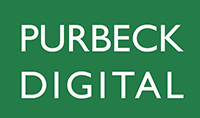In April 2012, Google rolled out an extensive algorithm update. Google Penguin, was an update that targeted websites which violated the Google Webmaster Guidelines in an effort to boost their page rank and site visibility. Websites which were participating in link schemes such as Build My Rank and High PR Society were identified by Penguin and had their rankings dropped. Penguin was part of Google’s on-going effort to provide the most relevant, quality and unique websites to its users, it’s USP. Although Google has since stated that they won’t be releasing any more information on updates (in order to protect itself against the ever escalating arms war against SEO) speculation as to what changes the search engine will be making has set the Search world abuzz.
Merchant Quality
Speaking at SXSW, senior Google engineer Matt Cutts hinted that the next update might focus on the quality of merchants that are retrieved in its search results. Google currently collect information about e-commerce stores via its Google Trusted Stores programme, but the new algorithm could factor in other ratings and rankings to assess the quality of online merchants. This could be good news for consumers who are looking for trusted websites to purchase goods from and it may make it easier to find products and services. However, small niche businesses could suffer from such an update if big consumers are given preference in the search results.
It’s All About the Content
Google strives to create the best user experience for browsing the web. The service Google provides relies on the quality of websites it retrieves in its search engine results. Before Google refined its algorithms, aggressive webmasters could purchase links from content farms, buy low value spamming back links to boost their rankings. When Google Panda (Penguin’s predecessor) hit in 2011, Google specifically targeted websites with thin content and using SEO techniques like spun boilerplate content. Nearly 12 per cent of all website rankings were affected by Panda. Penguin made similar tweaks to Google’s algorithms by targeting low quality content, so it wouldn’t be surprising if their next big update has similar ramifications. Content strategy is more important now than ever, and webmasters must have a steady and quality stream of content, promoted across social networks with authorship attribution if they want to prove the quality of their website to Google.
Google Plus & Social Media Tidy Up
Link participation and referral schemes have long been labelled as ‘black hat’ SEO techniques, but it seems like some websites are employing similar tactics with social media. The amount of ‘Likes’ and ‘Followers’ a website has should be a reflection of its quality and an indication of how active its community is and how much content they share and generate. However, while social media can help boost a website’s traffic, webmasters aggressively pursue this sort of social activity with thin social media accounts may find themselves on the back-end of a Google algorithm update. Google could start weighing disproportionate and hollow social media activity on platforms such as twitter and facebook against the worth and content of the website, forcing users on to the Google + platform, in an attempt to verify the authenticity of social media accounts.
Link Profiles
In October 2012, Google launched a disavow link tool. When ranking a website, Google analyses what kind of links a website receives from other sites. Google sees low quality links as spammy and artificial and they reflect badly on the website they are linking to, ultimately affecting its ranking and link profile. Using the disavow tool, webmasters are able to flag third-party, low quality links and ask Google not to take them into consideration when ranking their website. There is some debate as to whether this is a phishing tool by Google to determine link schemes of SEOs, and many contradictory case studies. Google algorithm updates have consistently attempted to weed out artificial link building to stop page rank manipulation, and the next update could well see the search engine’s efforts increase against some of the few link building practices that are left such as guest posting.
Poorly Formatted Websites
A website’s user experience isn’t just defined by its content. Users must be able to intuitively navigate websites to find the content they want. Google already penalises websites which have broken links, thin and duplicate content, so it may turn the dial up against those websites that are poorly optimised and suffer from slow performance. Also, with the rise of smartphone and tablet browsing, Google may take a look at the coding of websites which offer mobile optimised navigation.


